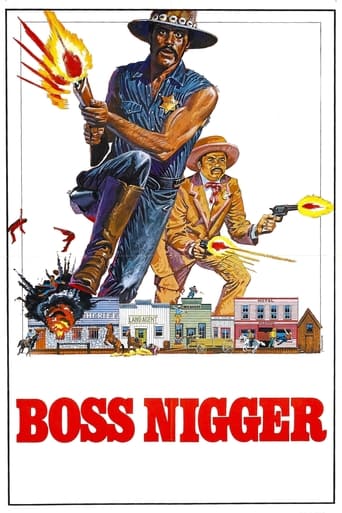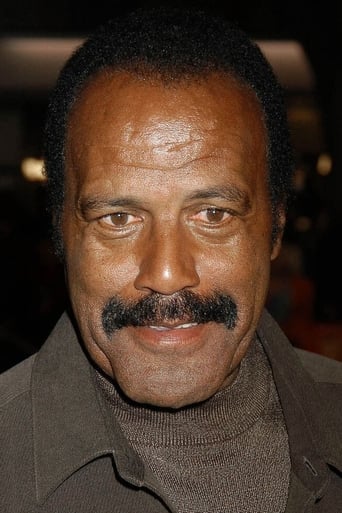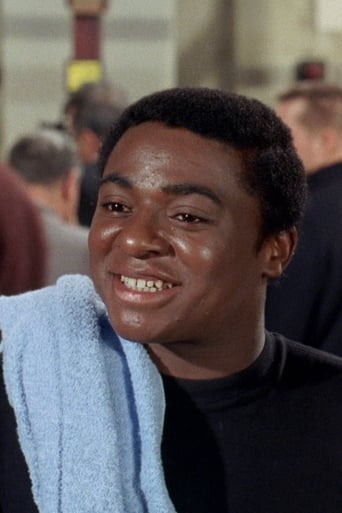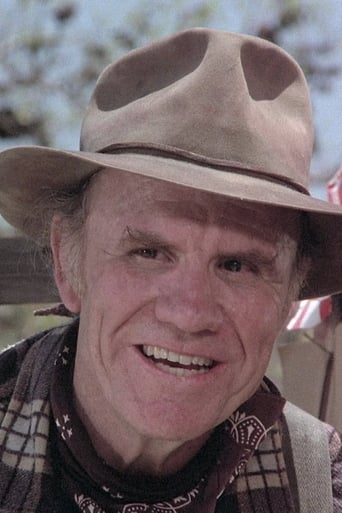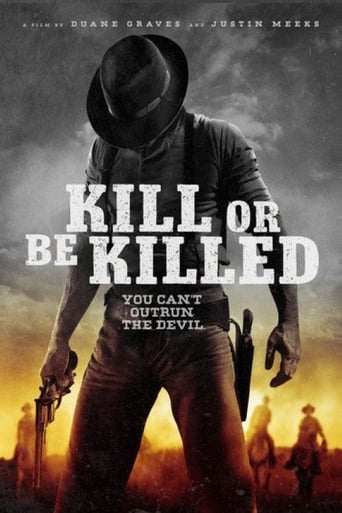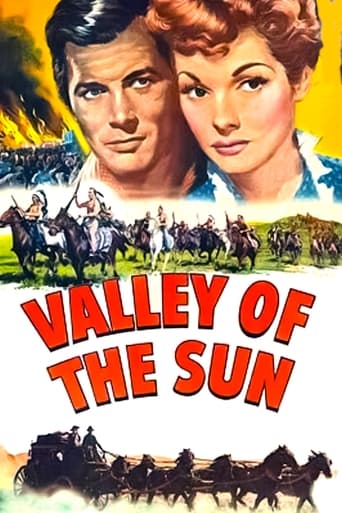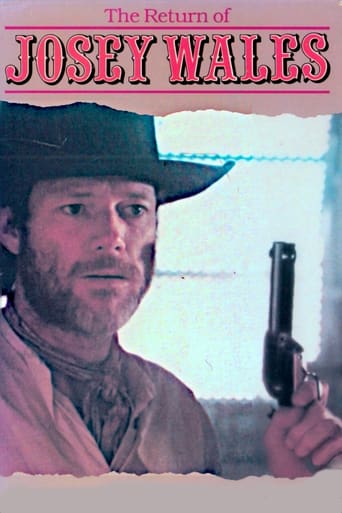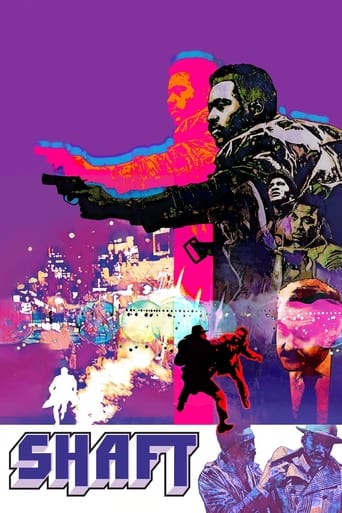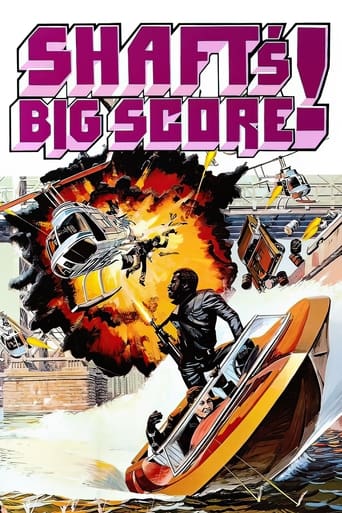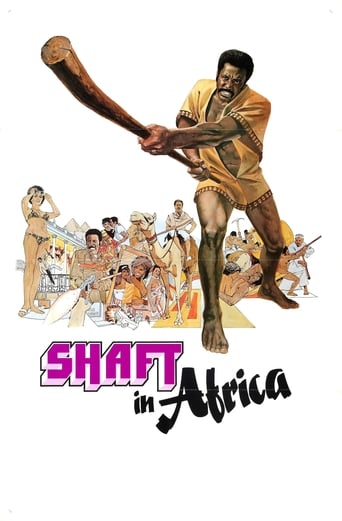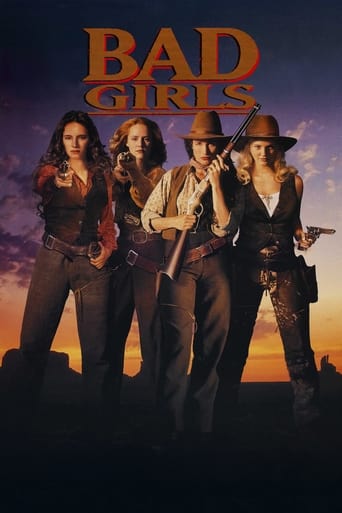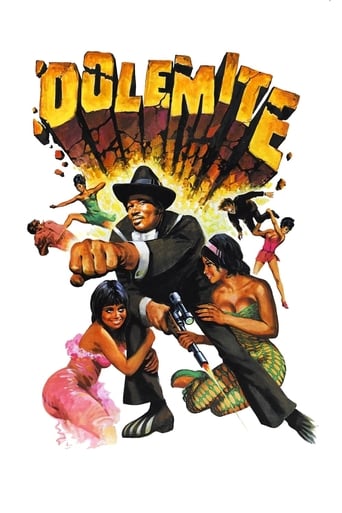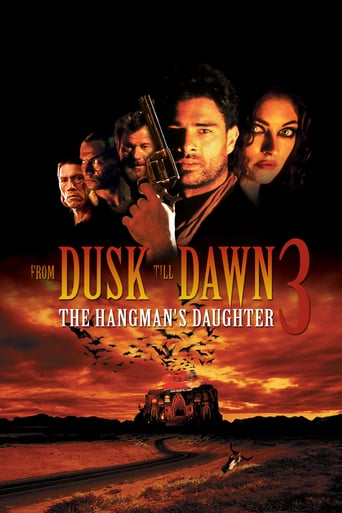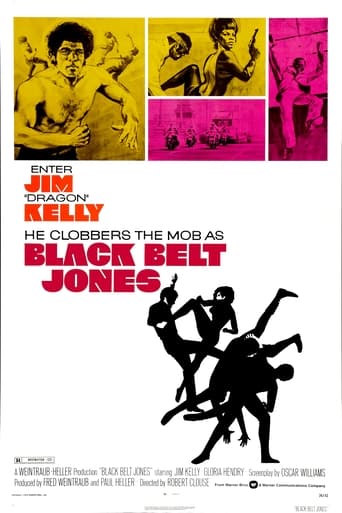Boss Nigger (1975)
Two black bounty hunters ride into a small town out West in pursuit of an outlaw. They discover that the town has no sheriff, and soon take over that position, much against the will of the mostly white townsfolk.
Watch Trailer
Free Trial Channels
Cast


Similar titles
Reviews
Too much of everything
The acting in this movie is really good.
There are moments in this movie where the great movie it could've been peek out... They're fleeting, here, but they're worth savoring, and they happen often enough to make it worth your while.
It's a good bad... and worth a popcorn matinée. While it's easy to lament what could have been...
This is a review of "The Legend of N***er Charley", "The Soul of N***er Charley" and "Boss N***er", a loose trilogy of films set in the pre-Civil War South and starring Fred Williamson as N***er Charley, a runaway slave. The first film, directed Martin Goldman, finds Charley as a plantation slave who kills his master and goes on the run. He teams up with Amos, another ex slave, and spends much of the film dodging bullets, evading bounty hunters and shooting caricatures, all dumb, racist white guys. The film ends with Charley heading further out West, desperate to find some peace and live as a free man. Released at the height of the blaxploitation craze, in the wake of surprise hit "Shaft" and almost a decade before "Roots" (where "black" suddenly went "mainstream" and "prestige"), "Legend" turned out to be one of the highest grossing movies of 1972. A sequel, "Soul of N***er Charley", quickly followed.The best of the series, "Soul" finds Charley as a near-mythical folk hero, a muscular black man who fights for right and has no qualms smashing the faces of racist white guys. The plot concerns Charley's battles with a Southern Colonel who oversees his own private slave trade, exporting slaves to Mexico where they're beaten and forced to work for a colony of Southern aristocrats.The final film in the series, "Boss", was released in 1974, at the tail end of various civil rights and black power movements. Like its predecessors, its aesthetic is an absurd mix of action, exploitation, Italian Opera, western, comedy, race baiting, casual vulgarity and mid century urban nihilism. Like all the Charley films, and most blaxploitation films in general, the film isn't racially progressive, isn't a celebration of racial pride, but is rather a kind of vile, venting of black rage on white figures of power. Organizations like the NAACP and various black civil rights activists actively fought against the blaxploitation "movement", considering these films racist at worst, at best detrimental to efforts toward equality. In truth, the films were largely no more dumb than the "positive image" films (usually with Sidney Poitier as an upstanding black guy who schools racist whites) associated with the Black liberation film movements of the 1960s. Blaxploitation simply substituted angelic, gentlemanly blacks with violence, degeneracy, sex and escapist race bashing. It turned condescension into a kind of empowered irreverence. Both approaches attracted millions, but were equally dopey, putting forth fantastically unrealistic solutions to genuine problems, misunderstanding the systemic causes of racism and glorifying either the loutish elements of the black community or pandering to white ideas of what a "good black man should be". Virtually all these films were produced, directed, financed or green-lit by whites, for whom the dollar was always the bottom line. If more blood and nudity sold more tickets, then so be it. Story be damned. It would be almost a decade before black directors like Charles Burnett and Spike Lee came on the scene.Today "blaxploitation" is an adjective. In the 70s it was a pejorative. Blacks, of course, were for a long while demonised in cinema. DW Griffith is the poster-boy for early Hollywood racism, with his Ku Klux loving "Birth of a Nation" and a bevy of other films ("One Exciting Night") which set in stone a series of racist caricatures. Ironically, Griffith's "Birth" was released the same year as "Darktown Jubilee", the first all black film with major roles for black actors. Today "Jubilee's" been lost. But from it you can trace a gradual relaxing of racist attitudes, until you reach Jules Dassin's "Uptight", 1970's "Cotton Comes" and two influential satires by Melvin Van Peebles, "Watermelon Man" and "Sweet Sweetback's Baadasssss Song". From these four films, blaxploitation would be born. Before directing "Song", Melvin suffered severe disillusionment with Hollywood, fled to France, became radicalised and spent some time drifting in a desert. With "Song" he actively set out to "undermine Hollywood's view of the world". But while the film did cause stirs – it was endorsed by the Black Panthers, it fired up radicals, got attached to polemical manifestos, was celebrated as a "new" type of avant grade expression, was predicted to launch a "cinematic revolution" - the political and cinematic shake-up people expected didn't happen. Instead, Hollywood, recognising that there was now money to be made off black audiences, began bankrolling a plethora of black movie projects, most of which were blood and guts action (and sex) movies high on juice and short of substance. Any threat that Van Peebles may have posed was soon nullified. This led to term "blaxploitation"; blacks for bucks.Like most exploitation films, the Charley series is explicitly about revenge. Revenge against slave masters, businessmen, sheriffs and white folk in general. "We've got us some more whites to catch!" is Charley's catchphrase, as he struts about to funk and disco tunes, acts cool, has casual sex and perforates dumb whites. Two of the rare masterpieces in this genre are Pontecorvo's "Burn!" and Jacopetti's "Farewell Uncle Tom". Both are by Italian directors and predate the American blaxploitation movement, which was heavily influenced by trashy Italian B movies, westerns, grind-house and Kung Fu. Because of their unique historical position, partaking of fascism but not scapegoated into petrification to the extent that Germany was, Italian film-makers tend to consistently approach issues like slavery and the Holocaust with rare skill.Quentin Tarantino has made a career out of exploiting exploitation movies. He's done Kung Fu with "Kill Bill", blaxploitation with "Jackie Brown" ("Across 110th street", "Sheba Baby", "Foxy Brown", "Coffy"), American pulp with "Pulp" and Naziploitation with "Basterds". His "Django Unchained" seems ready to pillage Corbucci's "Django", the Charley movies, "Mandingo" and "Farewell Uncle Tom".6/10 - Worth one viewing.
Two black cowboys ride majestically across the American plain. The music is a kind of funk-Morricone, with a singer enthusiastically explaining that "They call him Boss. BOSS N*GGER!" A black woman is being assaulted by a group of white cowboys, our black heroes intervene and save this damsel in distress.A blaxploitation Western was bound to happen eventually, and its a good thing Fred Williamson got there first. What Boss N*gger lacks in technical proficiency and skill it makes up for in heart and soul. The music is funktacular, especially the catchy theme tune, and the acting from our heroes is wonderful. Boss N*gger also boasts some very funny lines, such as Boss kissing a white woman, before going, "that's just to satisfy your curiosity."It's slow at parts, but the idea of two black bounty hunters coming to a white town and setting their own rules is appealing, and the film pulls it off. There are also some great shootouts, especially the finale, which is really quite exhilarating, and features a remarkable, almost downbeat ending. This film is by no means a masterpiece, but it is one of the best blaxploitation films I've seen, and an admirable effort on a small budget.
I watched this movie the other day. Sound was a bit poor but otherwise the film was in good shape.A blaxploitation-western mix? Surely this could not be good?But to my surprise it was!Certainly, the acting was utterly hammy but that is to be expected in both blaxploitation and in westerns so in that aspect it is in no way a bad thing.The plot is definitely not the worst one I've come across in any genre and the character's motivations generally fit in quite nicely.Admittedly, the Blacksmith and was a bit underdeveloped.The actors do their jobs decently, the fight scenes are lively and the music is catch as can be.No major complaints from me.
This is a good, solid B movie; not a great western, but a satisfying "blaxploitation" flick mostly because the humor is well done. Not only do the actors bring out the best in the material, but the material (by Williamson himself, who would soon make the jump to directing but on this film hired veteran pro Arnold) is not bad itself.Boss Ni**er includes a blaring title track that includes the immortal lines "he's a boss niiiiiiiggggaa" in what sounds like a white dude's best impression of Marvin Gaye. Its story concerns the Boss and his sidekick, played to perfection by Durville Martin of Dolemite fame ("I love those fat women" says his character, never knowing the trouble he could get into.....), as ex-slaves who "decided to hunt white folks for a change" and went out West to become bounty hunters. The plot follows the Yojimbo mold, even including a hastily assembled opportunity for Williamson to be captured and beaten near to death by the villains, only to recuperate and return for the final bloodbath.Like so many of Williamson and Martin's films, the appeal of the film comes from their charisma and the humorous ways they interact with the other, more straight, characters of the film. Thus, even though the plot and structure are predictable, many individual scenes are very funny and entertaining. Unfortunately, the action is not very well done. There is a PG rating, and it's pretty violent considering this, but it keeps the film from rising into the realm of, say "Il Grande Silencio" or "Fistful of Dollars", to which it is very similar; Williamson and Co. seem to have gone instead for comedy.The film is a success at reaching its modest goals, a good time for the audience letting off some tensions with a historically based race battle.Also contains one of the greatest exit lines ever: "There's nothing worse for a black man that to drag around a white b*tch".

